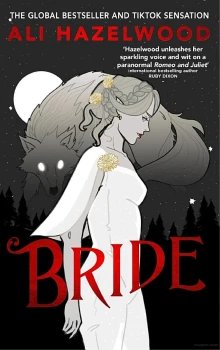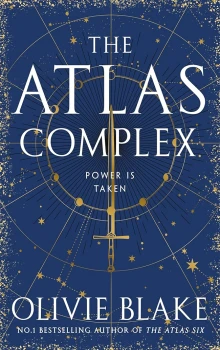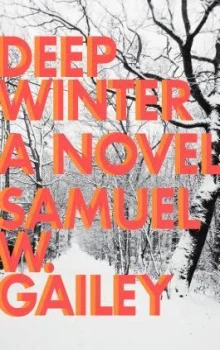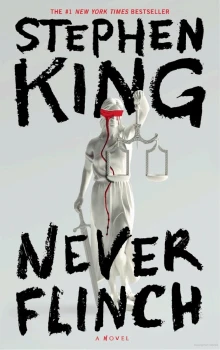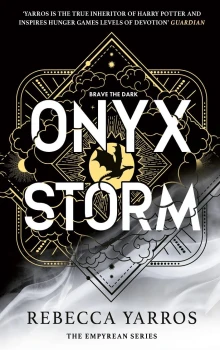8
Grazina hadn’t used her electric scooter in years, but Hai managed to drag it out from a pile of dust-laden coats in the corner of the screen porch. The scooter was hidden for so long Grazina had forgotten she had it until they saw a lady riding one during a news segment on the rise of diabetes and Grazina shouted, “Wait, I have one of those!”
A medical device that went no faster than eight miles an hour, the model was called the SpitFire 2, the fire part spelled out with flaming letters. It was like calling a catheter the Eternal Spring, Hai thought. He actually found it plugged in, probably charging for years, and spent half an hour wiping it down. When he finished, Grazina hurried over and hugged the scooter like it was a person. “Oh, thank you, Mother Mary,” followed by something in Lithuanian. “I have car now. Finally, I have car like a true American.”
“Close enough,” Hai said, giving the tires a kick.
Minutes later, they were taking it for a test ride. Grazina was driving, wrapped in a plaid blanket that covered her head against the chill, as he stood behind her on the perch. It was Sunday and the streets were mostly clear. As they rode, slowly dodging the occasional pothole, Grazina pointed out the homes they passed in various stages of dereliction, naming the families they once housed, what they did, what they died of, where they came from. The two rode back and forth through the deserted blocks, Grazina squealing with delight each time she revved the handle and the scooter jolted. They went home only when her hands were numb from cold and there was nothing left to tell of the people in the gutted houses.
The next day Hai decided on a whim to make everyone at HomeMarket his ultimate comfort food, Fluffernutter sandwiches. BJ was more bemused than interested in having any. “You work in a goddamned restaurant and you’re making everybody eat school lunch.” She shook her head. But amongst the tired, repetitive menu, the staff welcomed the relatively novel flavor of peanut butter and Fluff.
“It’s about the ratio,” Hai said, lining the sandwiches on a cutting board for Wayne to grill. “One-third Fluff, two-thirds peanut butter.” It was after the lunch rush and things were slow. Sony was out back cutting tomatoes, and Hai could hear him humming “When Johnny Comes Marching Home,” a Union Army drill number. After a while the song was interrupted by someone yelling in the dining area. Hai looked up. The man, judging from the logo on his polo, was on lunch break from the Nissan dealer nearby. “You smell like shit,” he shouted at a woman sitting behind him. He had stood up from his meal to confront her. But the woman didn’t move. Just sat there staring at one of Sony’s origami penguins on the table. It took Hai a minute to realize she was a regular who went by Cookie. She’d come in once a week just about, asking for a cup of hot water and permission to use the restroom, which the staff allowed, figuring she was homeless.
The man turned to BJ, his face pink as ham and his wispy, thin hair coming off his head like cartoon steam. “How can you let someone like this in your business? It’s terrible for your customers. She smells like literal shit.”
Hai had the sudden urge to throw a corn bread at him. You get protective of your regulars, even if they don’t buy anything. The woman was scrunched over in her seat, an oily brown coat draped over her shoulders with a matted ponytail poking out the back collar.
BJ asked the man, in her best managerial voice, to calm down, saying that he was free to move to the other side of the room, but he wouldn’t have it. He got up and made a scene of dumping his half-eaten drumstick in the trash, then marched back to where the woman was sitting, standing over her with his hands on his hips like a dad in a bad play. “Come on, guys,” the man said, exasperated. “I feel sorry for her too. I really do. I’m sure whatever she’s going through is real. But you’re really not gonna ask her to leave? I’m the one paying here.”
The woman was bent over the table gripping an empty Poland Spring bottle. “You can’t hurt me. You can’t never hurt me. I’ve been through much worse than being yelled at,” she said in a drawn-out monotone, staring at her scabbed knuckles.
The guy shook his head and walked out. He tried to slam the door, but it had pressure-resistant hinges, so it just shut behind him with a slow, tepid whoosh.
Soon the Fluffernutters were ready, and the crew all gathered around Wayne as he dished them out. No one noticed that the woman had gone inside the bathroom, all of them debating whether anyone would buy a grilled Fluffernutter if it was on the menu. The consensus was no. At one point the dishwasher girl had to use the restroom and banged on the door. When there was no response, BJ tossed her the key. Seconds later there was an air-splitting scream and everyone rushed to the bathroom. Dishwasher girl came bolting out, hyperventilating, her hands over her head.
BJ walked in and all anyone could hear was “Oh fuck, oh fuck. Shit, shit, no, no, no.”
The homeless woman was sitting on the toilet with the lid still down, her head nodding back against a giant framed close-up of corn bread. There was an empty rig on the floor by her feet. Blood ran down her veined arms, phone cord wrapped tight around her bicep. BJ covered her nose and yelled for somebody to call 911. Wayne tried to get the woman down on the floor so she wouldn’t fall and knock her head. Her mouth was open like a Scream mask. On the woman’s thin, sun-wrinkled wrist was a bracelet made of lettered white beads strung with hemp, which spelled out My Brother’s Keeper.
Wayne asked Hai to grab one of her arms, and they started dragging her down the hall so the medics could get to her faster, BJ on the phone shouting directions to the dispatch. When they passed one of the counters, Wayne, trying to grab the ledge for support, accidentally pulled down a giant bucket of cheese sauce that was set out to cool, and the whole thing dumped on their heads. The cheese sauce, meant for pouring over the mac and cheese for extra creaminess after defrosting, went right into the woman’s opened mouth. Luckily, it was lukewarm and didn’t burn. Wayne, his face and hair plastered, started frantically scooping out the yellow goo from her mouth. “Fuck,” he said, wiping cheese off her eyelids. “What the fuck is happening?”
The fire department came seven minutes later. They were just down the road and lately had been responding more to fent-dope ODs than fires and were ready with the Narcan. It took three long shots up her nose to get her back. Her eyes were fluttering like beat-up moths as they stretchered her away. She was waving her arms around and raging out, which he learned at New Hope can happen with Narcan. Maureen packed a bunch of corn breads in a paper bag and handed it to one of the EMTs, who had a mullet and a lip ring. She shoved it in her cargo pockets and said “ ’preciate chuh” as she carried the woman away, who was so plastered in cheese she looked like Han Solo trapped in carbonite.
The crew stood there a minute as the ambulance pulled off the lot, BJ wiping her face with her American flag handkerchief. Maureen, who had been clutching her Fluffernutter this whole time, dipped it into the leftover cheese on the side of the bucket, and kept eating.
“Really?” Russia said, watching her.
“I need to change the flavor in my mouth,” she shrugged.
Wayne was sitting on a stool by the dishwasher popping a sheet of Bubble Wrap draped to the floor, which he always kept in his backpack. It was his way of de-stressing during breaks.
Hai headed out back for some air, cleaning cheese spray off his glasses with his apron. The sauce was gluing his hair into blobs as it cooled. He sat on the milk crate and tried lighting a cigarette but his fingers weren’t working. He had the urge to pop five or six codeines just to sepia things out for a bit. Like putting yellow food coloring in the fish tank in your head.
There were footsteps behind him, then the sound of someone pulling up a crate and sitting down. It was Sony. They nodded at each other but didn’t say anything for a bit.
“I saw your mom at CVS.”
“What?” Hai faced him. “You talked to her?”
“ ’Course not, our moms are fighting. Just thought you’d like to know.”
“Don’t mention anything about me if you see her, okay?”
“Why?” Sony grabbed at a passing fly, then opened his hand—nothing.
“She thinks I’m in Boston,” Hai said quietly.
“Then why are you here?”
“Cause I’m here. It’s complicated.”
Sony nodded anyway, which was his way. It was what Hai loved about him.
Hai must have been sweating, because when Sony took his finger and started tracing something on his cheek, it felt slick and wet.
“What you doing?” Hai pulled back.
“Just hold still. I’m writing something.”
“What does it say?”
“Okay.”
“Okay?”
“Yes. I wrote okay.”
“Why?” Hai looked at him.
“Because I mean it.”
Hai let his face say okay.
Once, when Hai was twelve and Sony was ten, they were at the playground near Hai’s house at Welles Village. Sony was visiting for the weekend with his mom, and Hai was supposed to take his cousin to the park but didn’t really want to. Hai had just gotten a Super Nintendo that week and wanted to spend the day playing Castlevania, so he sat on the swings and let Sony roam around the little playscape until enough time passed to go home. After a while Hai heard this commotion and saw Sony surrounded by three or four neighborhood boys. They were teenagers and always acted tough around the younger kids. Hai was never invited to play with them.
“Why are you such an offie?” one of them said. They had surrounded Sony, who was sitting on the ground with his legs splayed and looking up at them, bewildered.
“He’s eating old gum from the slide,” another one said. “Don’t you know that’s nasty?”
One skinny kid with a bald head kicked dirt in his face, getting it in his eyes, and Sony started to cry. Another one turned to Hai. “Hey, he your brother or something? Cause y’all look alike.”
Hai shook his head and hopped off the swing and walked past them, past Sony crying on the ground. It wasn’t until Hai was almost home that Sony caught up, his face dirtier, and told Hai about what happened to him as if his cousin didn’t see it, as if he would’ve stopped it if only he saw. Hai couldn’t look at the boy. “That’s fucked up of them,” he said without stopping. Outside the door, Hai made Sony wipe his face with his shirt before they went in.
“Turn the other way,” Sony said now. “I need to get the other side.”
Hai turned and offered him his other cheek. Sony wrote okay on this side too, Hai feeling every letter.
“There. Now you’re double okay.”
Hai put his finger on his cousin’s forehead and wrote okay back. Sony grinned a grin that was supposed to be shy but was actually proud underneath.
That night, as Hai sat on the kitchen floor, the handheld radio crackling with the Lithuanian National Symphony Orchestra, broadcast from Boston, performing one of those melancholic, never-ending opera pieces, Grazina sat hunched in the chair above him, combing out rubbery globs of cheese from his hair. By now it was soothing to hear Lithuanian—not as white noise, but more like friends talking in the next room, inscrutable but warm and familiar.
“The Salisbury steak from Stouffer’s is better than the one in the can from Hormel,” Grazina said, her lips pursed. “Not by much, but it is. But the spaghetti dinner is on sale for $3.65 at Webster’s.” Grazina was tapping the orchestra’s rhythm on his head as she worked. “You know, we are so lucky in this country. To be able to go to market and get anything we want to eat.”
When he didn’t reply, she leaned over. “Tough day at the office, huh?”
“You can’t tell?”
She yanked a piece of cheese from his hair with a grunt. “Hold still, boy.”
The image of the woman’s bracelet suddenly flashed in his head. “Hey, you have siblings, don’t you?” He remembered her pointing to a brother under the rubble during her attacks.
“One brother. Long ago. But that’s another life.” Her hand stopped on his head as the music kept on.
“What happened?”
She stood so abruptly he turned around. “Ah, we must be ready!”
“For what?”
“Sit, sit. Go on over there and sit, your hair is good enough now.” She clicked off the radio and shuffled to the oven, opened the door, and lifted from it a cake frosted with chocolate.
“Here.” Hai went to grab a pot holder but she stopped him.
“It’s not hot. I made it this afternoon.” She set it on the table along with plates and a knife. “See?” She nodded at the frosting. “It’s Nutella cake. My specialty. Go put on the kettle for tea.”
While he was prepping the pot, Grazina said softly behind him, “Happy birthday, Labas.”
He paused, then remembered that she’d asked him the day of his birth the morning after they met. His eyes fell to the 9/11-themed calendar on the wall. In the square for November 15, scribbled in blue ink, were the words Labas birthday.
She pushed up her glasses with her middle finger and smiled.
“Oh, man. It’s beautiful.” There was a grain in his voice that quivered. “Thank you so much.” He leaned forward and they hugged awkwardly, then he flipped the radio back on and the orchestra’s final movement swept through the creaking house, muting the wide black river outside—and he was twenty.

